Research laboratories
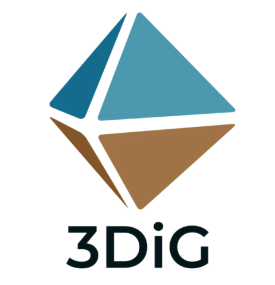
The 3DiG laboratory explores, develops, and applies innovative methodologies in the fields of digital geometry and advanced machine learning techniques for geometric data and geometric properties.
Head: Simone Melzi
Rooms: T022
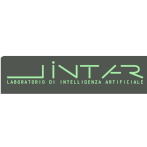
The Laboratory of Artificial Intelligence is focused on the the development and experimentation of models, methods, instruments, and technologies of Artificial Intelligence, including discrete dynamical systems (Cellular Automata and Multi-Agent Systems), and knowledge representation and engineering
Head: Stefania Bandini
Rooms: 1035

Bicocca Security Lab is an interdepartmental laboratory that combines the experience in the field of cybersecurity of the Department of Informatics, Systems and Communication and the Department of Law at the University of Milano – Bicocca.
Head: Claudio Ferretti
Rooms: T006, T007
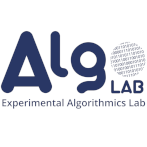
AlgoLab focuses on the study, design, theoretical and experimental analysis of algorithms and data structures for several applications that require paying special attention to computational efficiency.
Head: Paola Bonizzoni
Rooms: 1034
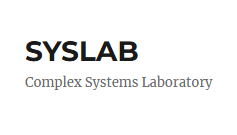
Syslab research activities concern the formal treatment of Complex System, their modelizations and applications
Head: Alberto Dennunzio
Rooms: T032
The Computational Systems Biology Lab deals with the development and application of novel mathematical frameworks and computational methods for the analysis of biological systems, with the purpose of identifying and controlling the intracellular and intercellular mechanisms that cause the onset of complex diseases.
Head: Daniela Besozzi
Rooms: 1046
The research activities of the Data and Computational Biology Laboratory (DCB) focus of genomic and molecular data analysis, especially in conjunction with “Cancer Research”, and on modeling and simulation of biological phenomena tied to therapy control. In these contexts, the DCB Lab activities concentrated on the reconstruction of tumor progression models, on the more general study of cancer evolution, on optimal therapy design (e.g., for chronic myeloid leukemia – CML) by means of Control Theory methods and on the study of different metabolic regimes and “metabolic rewiring” in various organisms and in cancer.
The DCB Lab developed tools and algorithms for the data analysis of patient’s populations and of individual patients’ Bulk-sequencing and Single-cells data (cfr., TRONCO). These tools were also integrated in the metabolic regimes’ applications and analysis methods always developed by the DCB Lab (cfr., MAREA).
Head: Marco Antoniotti
Rooms: 1047
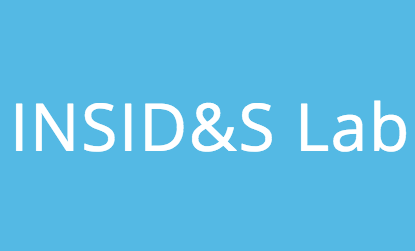
The DatAI laboratory develops models based on semantic and human-machine interaction techniques to support the management of large data and value-added services.
Head: Flavio De Paoli
Rooms: 1033
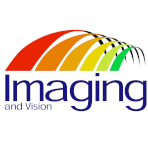
The main research areas of the Imaging and Vision Laboratory (IVL) include Color Imaging, Image, Video and Audio Processing, Analysis and Classification; Visual Information Systems; Machine Learning; Image quality; HCI and Biometrics.
Head: Raimondo Schettini
Rooms: 1038, 1048
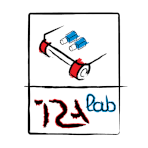
IRALab was founded in 1999, when Università degli Studi di Milano - Bicocca began its activity. The main research topic in IRALab is Machine Perception and Mobile Robotics.
We are a small and committed group, consisting of an associate professor, a research associate, 2 PhD students, and 2 research assistants. A few master (laurea magistrale) and undergraduate (laurea) students use to participate to our research activities.
Head: Domenico Giorgio Sorrenti
Rooms: 1020, U9-1i117
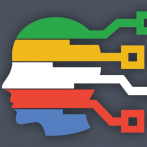
Research topics: study of algorithms for data management; analysis and presentation of data from elearning platforms; collaborative learning methodologies in educational thematic platforms.
Head: Matteo Dominoni
Rooms: T036

The laboratory deals with the definition of models and techniques to information and knowledge representation, retrieval and reasoning. In particular, the research activities of the lab focus on the realization of systems for information access, on the analysis of data and information from social media, and on the representation and management of knowledge.
Head: Gabriella Pasi
Rooms: T037

The Intelligent Sensing Lab was established to explore and develop innovative solutions by integrating Artificial Intelligence with advanced sensing technologies. This approach enables us to tackle complex challenges across multiple sectors—from healthcare and environmental sustainability to industrial applications and human-machine interaction.
Head: Paolo Napoletano
Rooms: 1007,1048

The lab hosts training activities (bachelor and master degree theses, internships) and research activities in the field of the representation and management of different forms of uncertainty, with application to machine learning and the development of predictive and discriminatory models and decision support systems, of which the socio-technical component is also studied, as well as the dimensions related to the human-machine interaction and the computer-supported collaboration, particularly in the medical field.
Head: Federico Cabitza
Room: T032

Artificial intelligence, Machine learning, Data and Text Mining are the keywords to adequately describe the research activities of the MAD laboratory. The main research topics are; Bayesian networks, causal networks, continuous time Bayesian networks and topic models. In particular, we study and develop algorithms for structural learning from observational data. The main application domains are biology, medicine, finance and recommendation systems.
Head: Fabio Stella
Rooms: T004, T005
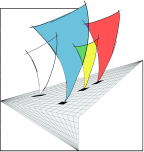
The laboratory is focused on design, analysis and implementation of algorithms for data analysis, machine learning, modeling and optimization under uncertainty.
Head: Enza Messina
Rooms: 1041, 1042
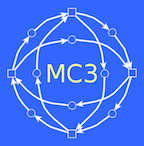
Research subjects include formal models of concurrent and distributed systems, and related techniques for analysis and synthesis.
Head: Luca Bernardinello
Rooms: 1001
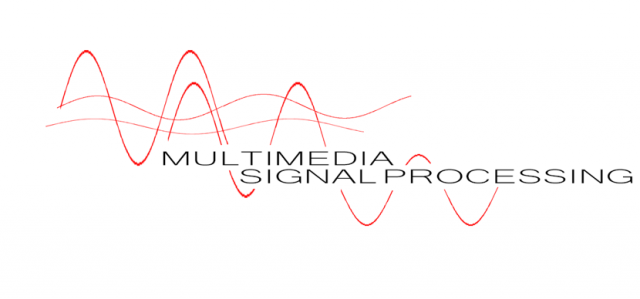
The research activity of the laboratory is focused on the definition of algorithms and methods for signal processing, from multimedia signals (audios, images and videos) to physiological and electrophysiological ones (galvanic skin response, heart rate, electromyography, electroencephalogram).
The analysis of heterogeneous and multimodal signals can be useful in several interdisciplinary fields of research and for this reason the laboratory collaborates with several other departments, including psychology, educational sciences, statistics and with the NeuroMI center (Milan Center for Neuroscience).
The main research activities are related to Affective Computing and Brain Computer Interface, in particular through the use of wearable devices.
Head: Francesca Gasparini
Rooms: 1013
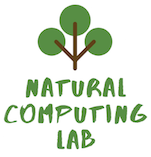
The research activity of the Natural Computing Lab focuses on the study of innovative computing models, inspired from different natural phenomena or using natural materials (such as, for instance, biomolecules) to store information and compute.
Head: Claudio Zandron
Rooms: 1046
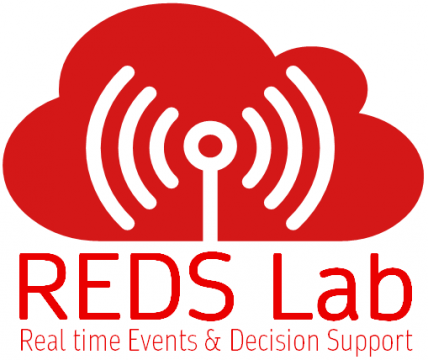
The “Real time Events analysis and Decision Support” (REDS) Laboratory is dedicated to the research in the field of software systems, aimed at understanding and controlling the behavior of complex environments evolving in real time.
Head: Claudio Zandron
Rooms: 1046

The laboratory’s research activity focuses on applications of
computational intelligence (machine learning) aimed at sustainability,
and falls within the framework of the “Departments of Excellence”
project ReGAInS, whose specific objectives include:
1. responsible, reliable, safe, and interpretable artificial intelligence;
2. sustainable computing systems;
3. the improvement of individual and social well-being;
4. biomedical and health research through computational methods.
Head: Gabriele Gianini

The main objective of SAL is to define, develop and experiment architectural models, methodologies, and tools facing the challenges of emerging application domains.
Head: Daniela Micucci
Rooms: 1039, 1040
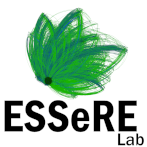
ESSeRE Lab research interests focus on the area of reverse engineering, software maintenance, software quality assessment, managing technical debt, software architecture reconstruction, by exploiting traditional approaches and soft computing ones.al software quality assessment
Head: Francesca Arcelli
Room: 1040
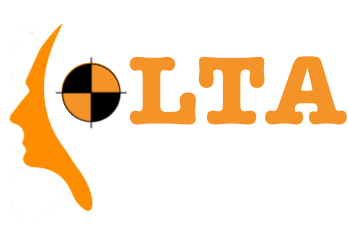
The laboratory of software testing and analysis actively works on the definition of novel methods, techniques, and approaches for the verification and validation of software systems, for the automation of the testing process, for the static and dynamic analysis of software programs, for the design of self-healing mechanisms, and for implementation of automatic program repair solutions.
Head: Leonardo Mariani
Rooms: T033, T034